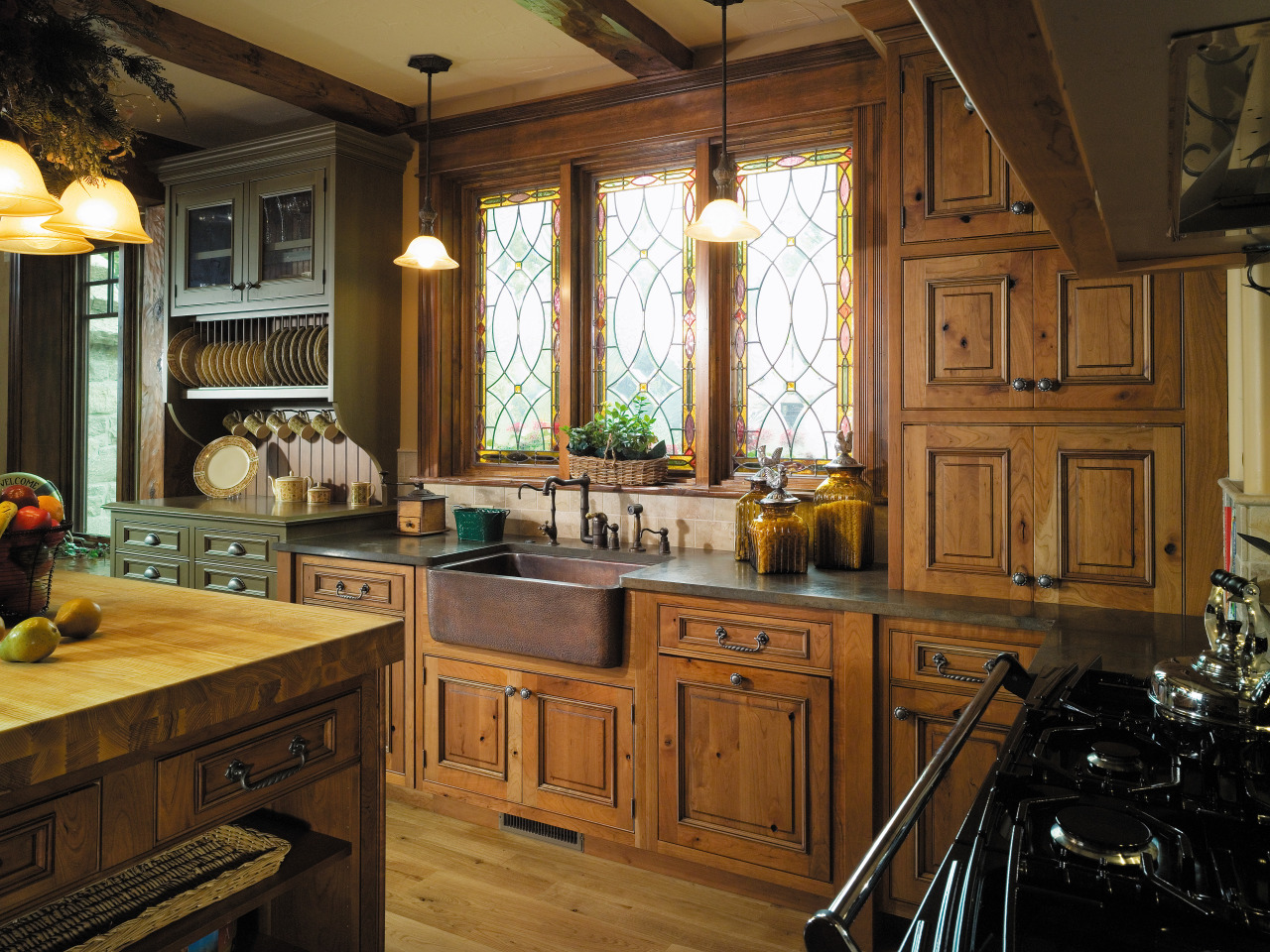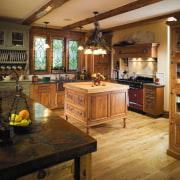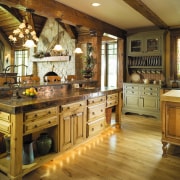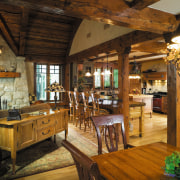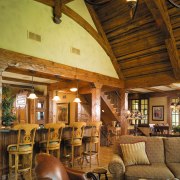Implied history
This kitchen forms part of a new home, but achieves the sense of having a longer history through a focus on traditional and eclectic elements
Family homes often undergo gradual changes over time – their history growing with every fresh element introduced, or even the aging of their materials. One way to achieve this sense of the past in a new home is to build in an implied history, with eclectic furniture choices and weathered materials making the interiors look like they have evolved over decades. This kitchen and the home it inhabits are good examples of building an implied history into a new residence. Designed by architect Kent DeReus, the interior is composed of a variety of objects, each looking like it might have its own story to tell. The wide-ranging choice of furniture in surrounding rooms is carried through into the kitchen proper. Cabinetry here is in different wood species, and has various distressed finishes or paint finishes that bring an individual feel to each piece. Even though all pieces are either standard or custom versions of brand-new, traditional-look furniture, DeReus has taken care that each has an individual character. For example, all the cabinetry handles are different from piece to piece and the counter surfaces are at varying heights. If this weren’t enough, all the cabinets either are, or appear to be, free standing. This adds to the feeling that each piece was introduced separately over time. If the cabinetry had been given a built-in look it would have heightened the feeling that the kitchen was all created with one master stroke. Other elements that add to the room’s invented history include the patinaed copper counter table, which will quickly gain a real weathered history, depending how spills and scrapes impact it. Appliances, such as the Aga stove and hob, are in a timeless design and many of the more contemporary pieces, such as the dishwasher, are integrated into the distressed wood panelling. With many modern faucetry pieces being created in traditional forms, it was not difficult for DeReus to ensure that the classic-style kitchen has full contemporary functionality. As with many apparently casual interiors, it can take a great deal of forethought to ensure the disparate furniture elements work well together. “There are touches throughout this kitchen space that draw the diverse elements into a common family,” says the architect. “For example, the copper of the farmhouse sink is repeated in the copper work surface and backsplash of the island counter. The stone backsplash behind the double oven is an echo of the solid stone fireplace that anchors the adjacent living room space.” Although the cabinets are in different heights and tones, their paneling, while not identical, carries similar proportions through all the pieces. Another linking element between the rooms is the flooring. This remains uniform in height and tone right across the open-plan area, as do the baseboards, another common element. The light-toned floorboards fulfill a second purpose by further accentuating the free-standing appearance of the darker furniture. While the kitchen is open to the adjoining living spaces and shares the same flooring, the architect retained a traditional, separate feel for the space by delineating it with a dropped-down, intimate ceiling. The island counter also provides a division between guests and cook by separating off the space at waist height. At the same time, this leaves the kitchen open visually so guests or family and the incumbent chef can still interact. “The open-plan nature of this kitchen works well in terms of entertaining and family gatherings,” says DeReus. “However, the design was also driven by the owners’ desire to be able to appreciate the views afforded by floor-to-ceiling windows on the far wall of the living area.”
Credit list
Architect
Interior designer
Countertop surfaces
Backsplash
Faucets
Microwave
Dishwasher
Kitchen designers
Cabinetry
Flooring
Kitchen sink
Refrigeration
Waste disposal
Story by: Trendsideas
Home kitchen bathroom commercial design
